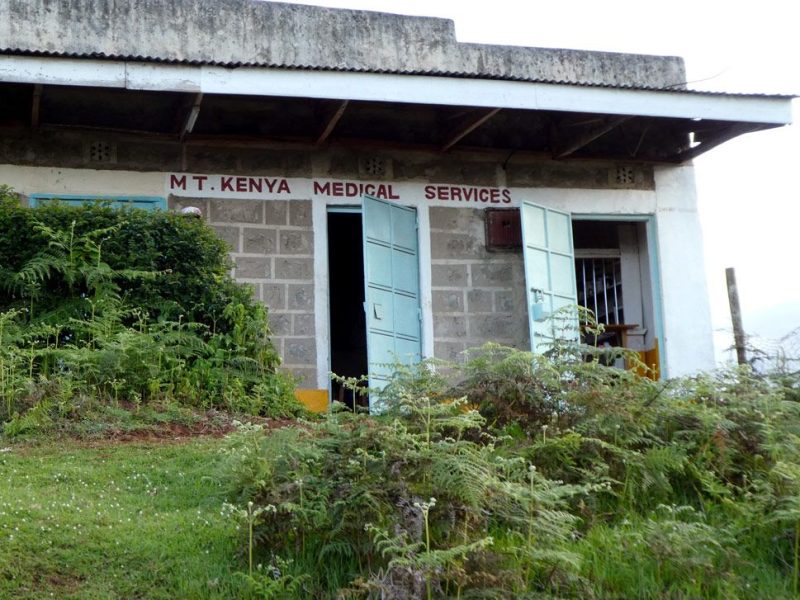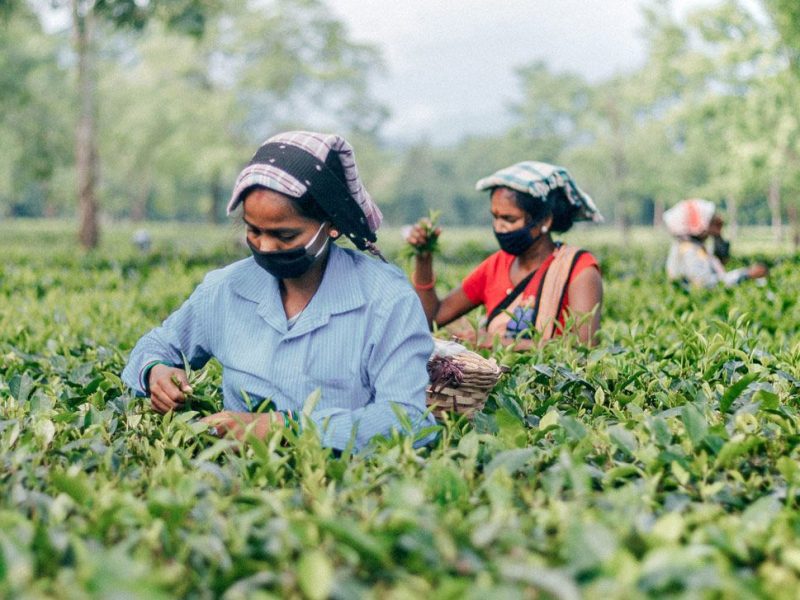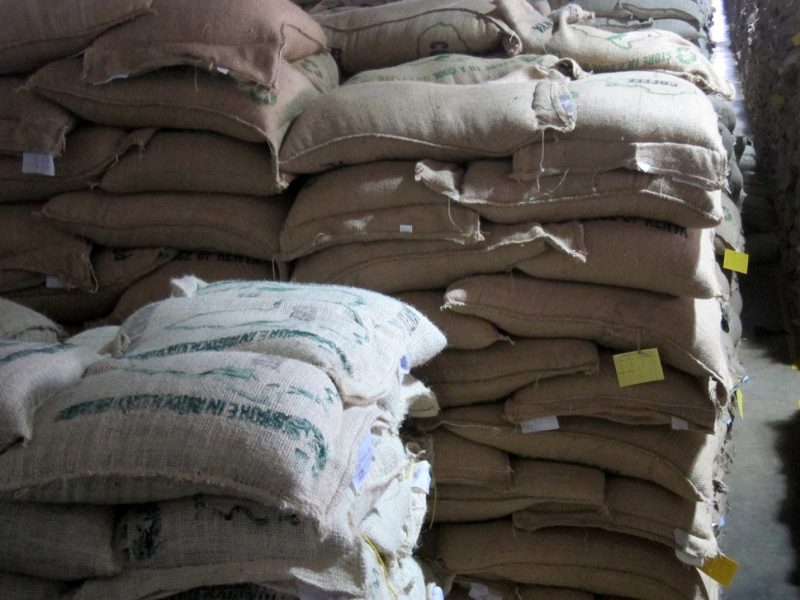About the FSS
Why Hunger and the Right to Food Matter
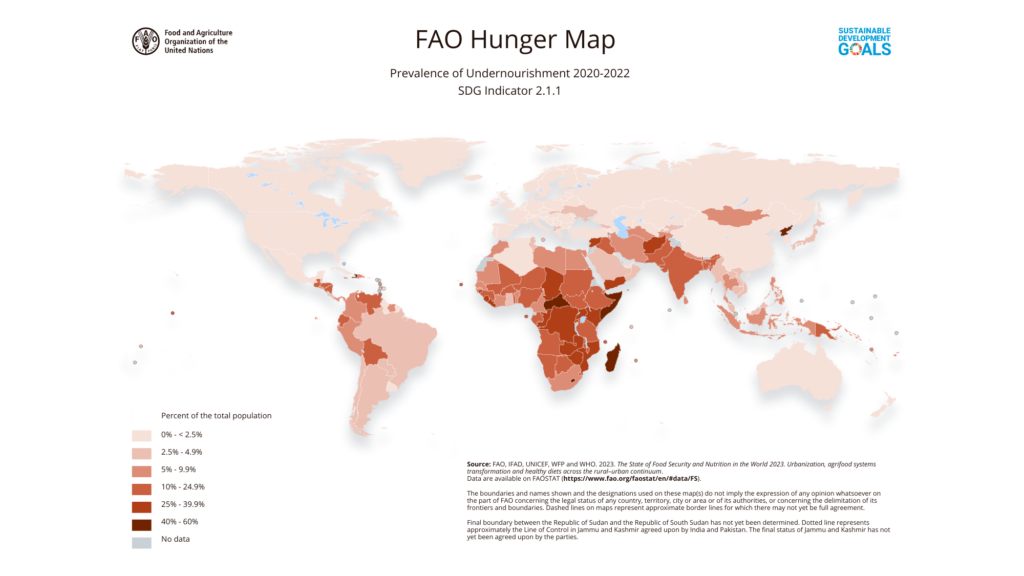
As long as there is hunger in supply chains:
- Problems such as child and forced labor will also continue to exist
- Producers cannot invest in sustainability and technology
- The potential for economic growth is not fully utilized
- Sustainable Development Goals (SDGs) are not achieved
- Supply chains cannot be resilient and sustainable
Food security is a fundamental human right, yet hunger and malnutrition persist in many countries of the Global South. Currently, around 735 million people suffer from hunger and over 2 billion are malnourished. At the same time, many countries affected by hunger produce agricultural products for world markets, where basic human and labor rights are often not respected.
Human rights must always be considered in conjunction with each other. For example, violating the right to food may indicate that other rights are also not being respected or fulfilled.
“The human right to food can, as a matter of principle, not be ensured unless the protection of other human rights and compliance with environmental obligations are ensured.”
Legal Benchmark, GvW Graf von Westphalen
Why We Need the FSS?
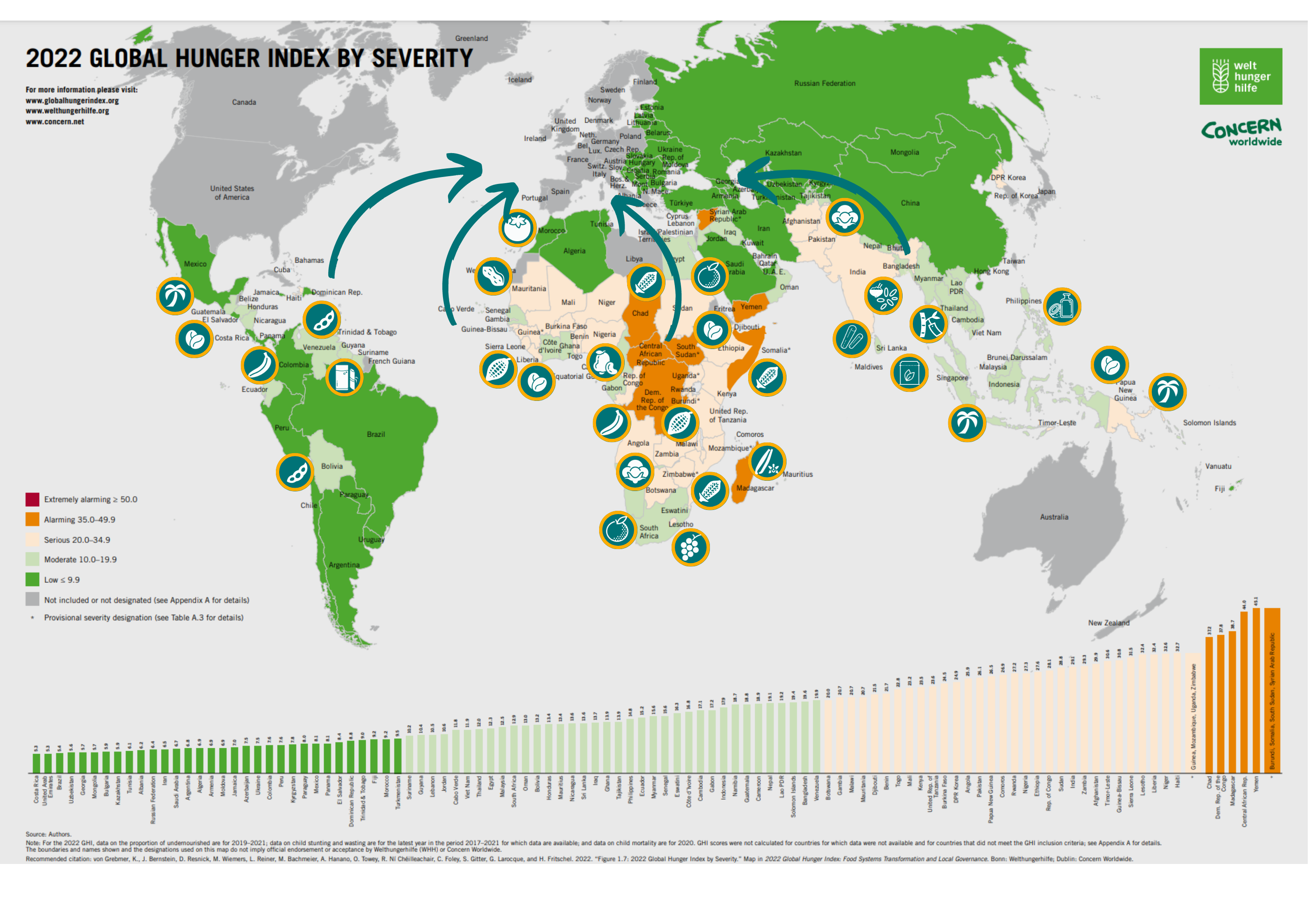
Whether it is avocados, tropical fruits, palm oil, coffee or rubber, consumers are often unaware of the living and working conditions of the people who produce these raw materials: Their incomes are often insufficient for a decent standard of living, they have limited access to clean drinking water or medical care and might suffer from hunger and malnutrition. Consumers are increasingly demanding transparency on human rights compliance in supply chains, and governments are enacting legislation to ensure social and environmental sustainability.
The FSS is a field-tested solution for implementing due diligence and managing human rights risks in agricultural production. By implementing the FSS, actors in the supply chain can demonstrate their due diligence. For workers, smallholders and surrounding communities in producing countries, this improves working and living conditions and strengthens market opportunities.
Development of the FSS
The FSS was developed in 2017 as a joint project of the Center for Development Research (University of Bonn, Germany) with Welthungerhilfe (Bonn, Germany) and WWF (Berlin, Germany), and is funded by the German Federal Ministry for Food and Agriculture (BMEL) via “Fachagentur Nachwachsende Rohstoffe” (FNR).
During this phase, the FSS criteria, indicators and associated tools were successfully tested in collaboration with local producers and international certification schemes (ISCC, RSPO, CmiA, UTZ/Rainforest Alliance) through pilot audits in food insecure regions of Africa, Latin America and Asia.
Today, Welthungerhilfe and Meo Carbon Solutions jointly implement the FSS.
If you would like to learn more about our FSS pilot audits, please visit our Download section where you will find detailed reports and a summary of findings (factsheets).
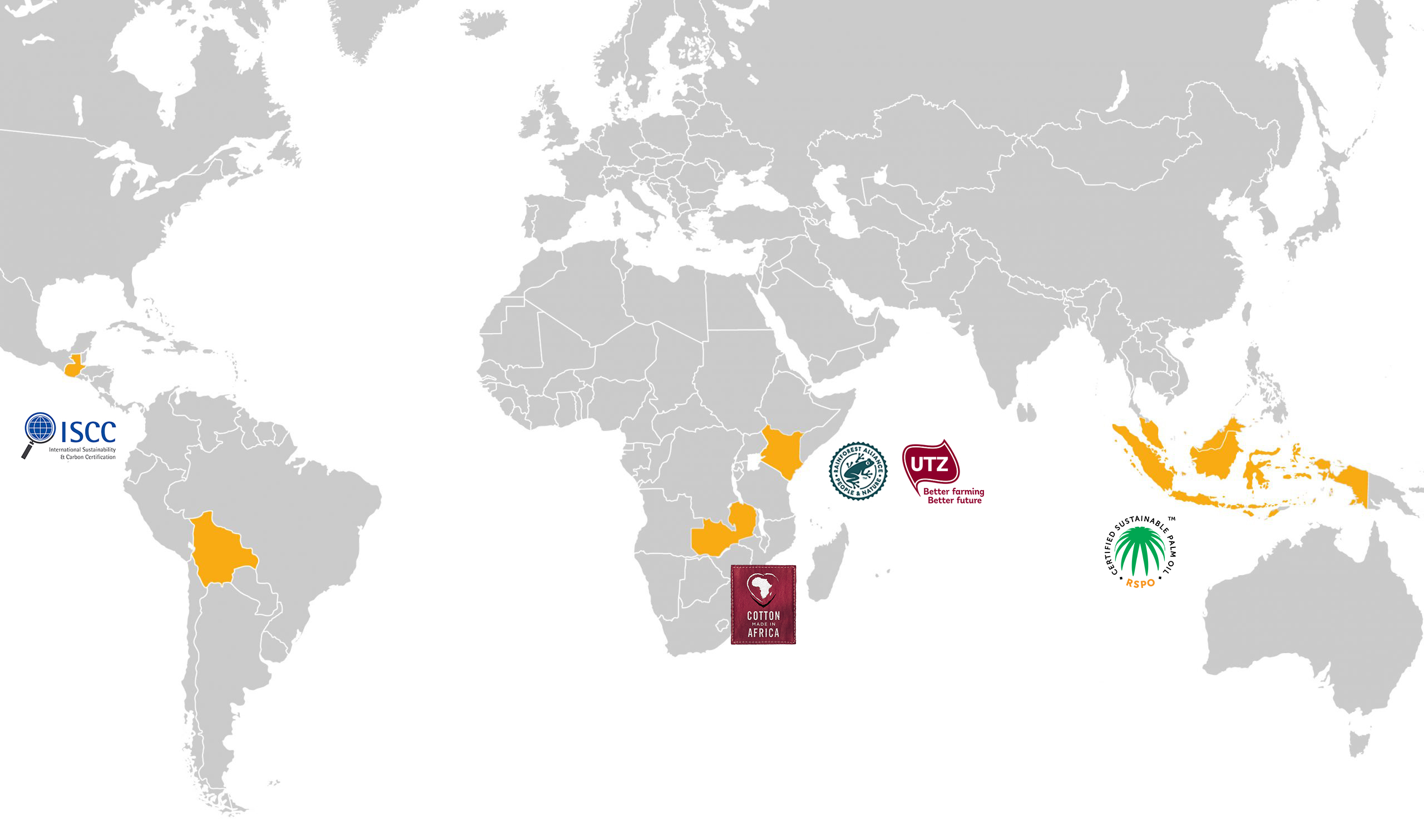
How the FSS Works
The FSS is based on the human right to food and the associated voluntary guidelines of the Food and Agriculture Organization of the United Nations (FAO). It contributes to the achievement of a wide range of Sustainable Development Goals (SDGs).
Through its systemic approach, the FSS tracks human rights requirements in agricultural production. With its measurable and practical criteria, it offers companies a toolbox for complying with and fulfilling human rights due diligence obligations. The FSS can be implemented in two ways:
- FSS certification: Can be integrated into any existing sustainability certification scheme to verify compliance with the human right to food and other human rights due diligence obligations at the production level. Proof of compliance with the FSS criteria is provided as part of the main standard’s audit.
- FOSSEM (Food Security Sensitive Management): A two-step approach to continuous improvement based on the FSS criteria that should gradually lead to full FSS compliance — even in higher-risk production regions. It offers a low-threshold and cost-effective entry point for companies to meet the Duty of Effort on Human Rights Due Diligence requirements from the German Supply Chain Act.

The Four Pillars of Food Security
Availability
There is a reliable and consistent source of quality food.
Access
People have sufficient resources to produce and/or purchase food.
Stability
People’s ability to access and utilize food that remains stable and sustained over ti
Utilization
Knowledge and basic sanitary conditions to choose, prepare and distribute food.
FSS Principles and Criteria
The FSS principles, criteria and indicators are based on the human right to adequate food.
They do not go beyond the human rights requirements and show whether a company complies with this right at a supply chain’s production level. The FSS is organized into five pillars: The four pillars of food security alongside a fifth pillar to address additional cross-cutting issues included in the Right to Food Guidelines. The pillars are further specified through 17 principles.
The pillars are further defined by 17 principles.
The principles and criteria of the FSS enable existing certification systems to be strengthened by holistically covering the human right to food.
To ensure that people who produce agricultural products for global markets always have access to sufficient and healthy food, factors such as adequate wages and acceptable working conditions are just as important as education, basic health care and connection to social security systems. The same applies to access to clean drinking water and the sustainable use of natural resources. These additional principles are covered by one or more criteria in the FSS. Additionally, on-site coverage is based on concrete indicators and verification points. These describe the exact requirements that must be met in order for the right to food to be respected in the farm’s area of responsibility.
STABILITY
2. Respect national food security and development strategies
2. Respect national food security and development strategies
3. Mitigate natural and human-made disaster risks
ACCESS
4. Ensure market access and contribute to local development
5. Safeguard long-term farm profitability and fair business conduct
6. Respect labour rights and ensure good working conditions
7. Provide training and capacity building
8. Offer social safety nets
AVAILABILITY
9. Respect land rights
10. Respect water rights and ensure that water quality and availability are maintained or improved
11. Implement sustainable agricultural practices
UTILIZATION
12. Provide a setting for the safe utilization of food
13. Guarantee good nutrition
CROSS CUTTING ELEMENTS
14. Provide complaint and grievance mechanisms
15. Respect women’s rights and ensure gender equity
16. Raise awareness for nutrition and support child education
17. Assess and monitor local food security

